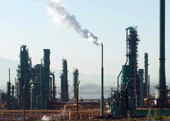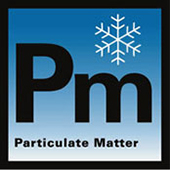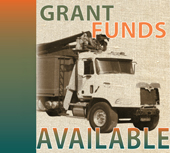|
|

|
|
|
|
May 2024 l Volume 2024-2
|
|
|
|
|
|
|
In this issue, you’ll find articles about the expansion of the Clean Cars for All grant program to the entire Bay Area, rollout of the Clean HEET grant program, major agreements with two refineries resolving litigation in favor of the Air District, and the appointment of the agency’s new Deputy Executive Officer for Equity & Community Programs. Other articles cover a public funding workshop for community organizations, the Air District’s support for the U.S. EPA’s more stringent PM standard, a Hearing Board decision ordering a sand-blasting facility in Bayview Hunters Point to get a permit, and a recent penalty assessed to Berkeley Landfill. Current grant opportunities are also summarized.
|
|
|
|
|
|
|
|
|
|
|
|
|
|
Air District Expands Clean Cars for All Program to Entire Bay Area
|
|
| | |
|
The Air District has expanded the Clean Cars for All program to the entire nine-county Bay Area within the Air District’s jurisdiction. Clean Cars for All now offers up to $12,000 for qualified residents to retire older, more polluting vehicles and replace them with a new or used hybrid, plug-in hybrid, electric or fuel cell vehicle, or to get a prepaid transit card or e-bike and bike accessories. Additionally, up to $2,000 is available for home charging equipment when purchasing a plug-in hybrid or electric vehicle.
In addition to increasing the award amounts – up from $9,500 previously – the Clean Cars for All program also expands eligibility to all Bay Area zip codes, increases the vehicle model-year cap from 2005 to 2007 and reduces the eligible household income limit from 400 to 300 percent of the federal poverty level. The program was previously limited to communities most impacted by air pollution.
The Air District launched the Clean Cars for All program in March 2019 as part of a broad effort to make clean air vehicles affordable options for residents across the Bay Area. The California Air Resources Board recently awarded the Air District $28 million, with an additional $3.4 million expected this year, to continue support for this program.
Participating residents may choose one of the following clean air transportation options to replace their old vehicle that will be scrapped:
- Electric Vehicles that operate solely on their electric motor. Electric vehicle batteries recharge by plugging into an outlet or charging station.
- Fuel Cell Electric Vehicles that use hydrogen fuel and an electric motor instead of a gasoline engine.
- Plug-In Hybrid Electric Vehicles that combine an electric motor with a gasoline engine. Plug-in hybrid batteries are recharged by the gasoline-powered motor through regenerative braking and by plugging into an outlet or charging station.
- Hybrid Electric Vehicles that combine an electric motor with a gasoline engine. These vehicles cannot be "plugged-in" to be recharged. The gasoline-powered motor also acts as a generator to recharge batteries on hybrids.
- E-bike or Transit Card that can be used for public transportation on Bay Area transit systems.
Applicants must live in the Bay Area Air District’s jurisdiction. For more Clean Cars for All program details and information about how to apply, to complete an application, or to verify eligibility, visit the Clean Cars for All website.
|
|
|
|
|
|
|
|
|
|
|
|
Air District’s Clean HEET Program Begins Accepting Applications
|
|
| | |
|
On March 12, the Air District’s Clean Heating Efficiently with Electric Technology, or Clean HEET, Program began accepting applications for grants that can help to offset the cost of switching from a wood-burning stove or fireplace insert to an electric heat pump. The program is designed to improve air quality in communities by replacing polluting wood-burning heating devices with cleaner heating options.
Heat pumps offer a clean and energy-efficient alternative to wood heating appliances, furnaces and air conditioners. Like a refrigerator, heat pumps use electricity to transfer heat from outside air to heat a home. Most heat pumps can also cool a house by operating in reverse, removing heat from indoors.
The Air District’s Clean HEET Program complements other incentive programs that are currently offered to Bay Area homeowners to help reduce or lower the cost of installing cleaner heating options. Other programs also offer support and technical assistance to low-income residents. A list of available incentive options is available on the Air District’s Clean HEET Program web page.
The Clean HEET Program offers qualifying homeowners up to $6,500 to replace an eligible device, and applicants may request additional funding if they participate in a qualifying low-income assistance program or if they will be replacing a second eligible device.
An overview of program requirements include:
- Applicants must receive approval from the Air District before making any purchase or starting any work.
- No retroactive reimbursements are allowed.
- Only wood stoves and wood-burning fireplace inserts are eligible for replacement; standard or open-hearth fireplaces do not qualify.
- Upon installation of the new heat pump, the old stove or insert must be decommissioned and brought to a recycling center.
- Funding is prioritized for homeowners located in the region’s communities most highly impacted by air pollution, including East and West Oakland, Richmond, San Pablo, Bayview Hunters Point and Southeast San Francisco.
- Applications will be accepted until 5 PM, PDT, May 15, 2024.
The Clean HEET Program will provide grants to nearly 300 homeowners and is funded by the Environmental Protection Agency’s Targeted Airshed Grant Program, or TAG, which provides grants to improve air quality across the nation with emphasis on reducing ambient air concentrations of PM2.5, or fine particulate matter, with match funding by the Air District.
For more information please visit www.baaqmd.gov/WoodSmokeGrant or contact the Air District at woodsmokegrants@baaqmd.gov or (415) 749-5195 for more details.
|
|
|
|
|
|
|
|
|
|
|
|
Air District Secures Decisive Victory as Chevron and MRC Refineries Drop Lawsuits: Chevron to Pay Highest Violation Penalties in Agency History
|
|
| | |
|
The Air District has reached two separate agreements with Chevron and Martinez Refining Company resulting in an end to the litigation against the agency over its groundbreaking Regulation 6, Rule 5, major emissions reductions from both refineries, unprecedented penalties and other payments of up to $138 million, and a Richmond-area Community Air Quality Fund, among other benefits. The Air District estimates that the emission reductions achieved by the rule will result in tens of millions of dollars per year in health benefits by reducing early deaths and other health impacts of exposure to particulate matter.
Both agreements are related to the Air District’s enforcement of Rule 6-5, the most health protective rule of its kind in the nation. The rule reduces airborne particulate matter, or PM, emissions from petroleum refinery fluidized catalytic cracking units, or FCCUs. FCCUs are devices used in the manufacture of gasoline and are the largest sources of PM at these refineries.
As a result of Chevron and MRC’s compliance with Rule 6-5, there will be an estimated 70 percent reduction of PM emissions from Chevron’s FCCU and an 80 percent reduction from MRC’s FCCU.
Chevron Agreement Highlights
Chevron drops its lawsuit and agrees to reduce PM emissions as required in the rule. In addition, they will pay unprecedented penalties for any delay in compliance past the regulation’s July 2026 compliance deadline. They have committed to compliance with Rule 6-5 pollution limits, with escalating, record-setting penalties for non-compliance:
- $17M for year 1
- $17M for year 2
- $17M for year 3
- $32M for year 4
Chevron implements interim PM emission reductions at the FCCU to obtain early reductions even before the regulation’s compliance deadline. They will pay into the Community Air Quality Fund, initiated with $20 million and supplemented annually by $3.5 million during the period needed for Chevron to construct air pollution controls. The fund will finance projects aimed at reducing PM exposures in the communities impacted by the refinery.
Chevron will also pay a $20 million fine for 678 other violations at the refinery unrelated to Reg. 6-5 and commit to a series of measures designed to reduce persistent flaring. They will pay half the Air District’s attorney fees, up to $500,000.
MRC Agreement Highlights
Martinez Refining Company drops its lawsuit and agrees to fully comply with the regulation. They will demonstrate compliance with the regulation using a continuous monitoring system instead of periodic quarterly stack testing, and they will pay half the Air District’s attorney fees, up to $500,000.
|
|
|
|
|
|
|
|
|
|
|
|
Air District Appoints Arsenio Mataka as Deputy Executive Officer for Equity & Community Programs
|
|
| | |
|
The Air District announced the appointment of prominent environmental justice leader Arsenio Mataka as deputy executive officer for Equity & Community Programs at the agency's Community, Health and Environmental Justice Committee meeting on April 22. After an extensive nationwide recruitment, Arsenio was selected for the position by a panel comprised of Air District officials and notable Bay Area community leaders. In this role, he will oversee the agency's community engagement, strategic incentives, technology implementation and diversity, equity and inclusion initiatives. Arsenio will serve as the primary liaison for environmental justice matters both internally and externally on behalf of the Air District.
Arsenio holds a bachelor’s degree in history from Sacramento State University and a Juris Doctor from Humphreys College School of Law. He has been a dedicated advocate for environmental justice and health equity, lending his voice to disadvantaged communities and underserved populations while collaborating with stakeholders across all levels of government.
Arsenio is a Biden-Harris Administration appointee where he led the establishment of two new offices at the U.S. Department of Health and Human Services: the Office of Climate Change and Health Equity, and the Office of Environmental Justice. He is currently serving as counselor to the secretary for climate change, environmental justice, civil rights and equity at the agency.
Arsenio brings a wealth of expertise to his new role within the Air District’s leadership team. His extensive experience includes serving as senior advisor on environmental policy and law to California Attorney General Xavier Becerra and as a special advisor to California Governor Jerry Brown, where he played a pivotal role in crafting climate change legislation. Prior to this, he served as assistant secretary for environmental justice and tribal affairs at the California Environmental Protection Agency, where he spearheaded initiatives to mitigate environmental disparities in disadvantaged communities.
Arsenio will start his role at the Air District on June 10, after he concludes his duties as counselor to the secretary at the U.S. Department of Health and Human Services.
|
|
|
|
|
|
|
|
|
|
|
|
Air District Hosts Public Funding Workshop for Community-Based Organizations
|
|
| | |
|
The Air District’s Community Engagement Office, in partnership with Chris Selig and Associates, will host a virtual Public Funding Workshop on Tuesday, May 14, from 10 AM – 12 PM on Zoom. The workshop will be free and open to the public. There is unprecedented public funding for climate-related planning and mitigation, resilient infrastructure and civic engagement. The workshop aims to demystify public funding and help community-based organizations assess their interest, capacity and fit for applying for state and federal grant opportunities.
This workshop will cover topics such as what the opportunities are, what to consider before applying, and where to access pro bono resources, tools and technical assistance.
Please note that the workshop will not provide information about applying for Air District grants.
Visit the Air District’s Workshops web page to register for the Zoom link and view workshop materials.
|
|
|
|
|
|
|
|
|
|
|
|
Air District Supports EPA’s More Stringent Health Standard for Particulate Matter
|
|
| | |
|
In February, the Air District announced its support for the revisions to the National Ambient Air Quality Standards for particulate matter pollution that were adopted by the U.S. Environmental Protection Agency. The Clean Air Act requires the EPA to set National Ambient Air Quality Standards for pollutants considered harmful to public health and the environment. Air quality standards define the maximum amount of these pollutants that can be present in ambient air for it to be considered healthy to breathe. The EPA has tightened the annual standard for particulate matter from the current 12 micrograms per cubic meter of air to a more health protective level of 9.
In 2019, the Air District and its Advisory Council convened the Particulate Matter Symposium Series to facilitate a discussion among nationally recognized scientists and stakeholders to consider the current state of particulate matter science. A major finding was that, while the Bay Area has made significant progress at reducing levels of particulate matter, more stringent standards are needed to protect public health.
Particulate matter is the most significant driver of health risks from air pollution in the Bay Area. Exposure has been linked to serious respiratory illnesses and increased risk of heart attacks and is especially harmful for children, the elderly and those with respiratory conditions.
|
|
|
|
|
|
|
|
|
|
|
|
Air District's Hearing Board Orders Bayview Hunters Point Sand-Processing Facility to Get Permit
|
|
| | |
|
The Air District’s independent Hearing Board has ordered Martin Marietta to obtain a permit for the company’s sand distribution plant located at Pier 92 in Bayview Hunters Point, San Francisco. The Hearing Board has also imposed restrictions on the plant’s operations to reduce emissions and protect public health. The order requires Martin Marietta to get a permit for the new facility by October 31, 2025, and to comply with operational restrictions requested by the Air District until the permit is in place. These restrictions are designed to ensure adherence to regulatory standards while prioritizing the protection of those living in the community.
The plant previously operated under an exemption from the Air District’s permit requirements. The facility lost that exemption while it was owned by Martin Marietta's predecessor Lehigh Hanson.
After taking over from Lehigh Hanson, Martin Marietta proposed to modernize the facility with enhanced environmental controls under a new permit application to address concerns raised by the Air District and the community. The Air District sought an order from the Hearing Board to mandate that Martin Marietta comply with operational restrictions and complete the permit process in a timely manner or cease operations.
Martin Marietta will also be required to obtain approval from the Port of San Francisco to construct the new facility, which owns the Pier 92 site. The City and County of San Francisco will conduct a comprehensive environmental review of the project under the California Environmental Quality Act.
The Air District will continue to monitor the facility closely and remain actively engaged with stakeholders to ensure the successful implementation of the Hearing Board’s order.
|
|
|
|
|
|
|
|
|
|
|
|
Air District Fines City of Berkeley Landfill for Air Quality Violations
|
|
| | |
|
The Air District has fined the City of Berkeley $130,000 for air quality violations that occurred at its landfill site at Cesar Chavez Park in Berkeley from 2019 - 2022. The $130,000 penalty covers seven violations in total, including six involving failures of the landfill’s gas collection system and one for failing to submit emissions testing results.
The landfill gas collection system extracts methane and other gases created by the decomposition of organic materials and funnels them through a system of wells and pipes to a flare, which burns off the gases before they enter the atmosphere or cause odors.
The problems involving failure of the gas collection system occurred due to the landfill’s lack of a backup power supply during a power outage. They varied in duration from two hours to four and a half days.
In addition to these violations, on February 16, 2024, the Air District’s Hearing Board ordered the City of Berkeley Landfill to fix a number of other problems with the landfill gas collection system, including repairing gas collection wells, upgrading inspection and monitoring procedures, conducting a drone study to search for gas leaks and evaluating whether landfill gas is seeping offsite.
|
|
|
|
|
|
|
|
|
|
|
|
Air District Offers Millions in Grants
|
|
| | |
|
The Air District administers a number of grant funding programs that offer incentives for clean air projects. Grant Funding for Clean Air Projects
Grant programs for Bay Area businesses and public agencies:
- (Opening Soon) Competitive Electric Charging Infrastructure for Medium- and Heavy-duty Vehicles and Equipment - Funding will be available for eligible projects that install new or expand existing battery-charging and hydrogen fueling stations. $35 million in funding is available with at least 80% being allocated for projects that operate in areas that are most highly impacted by air pollution, including the AB 617-identified communities of West Oakland, East Oakland, Richmond-San Pablo, and Bayview Hunters Point/Southeast San Francisco, and other disadvantaged and low-income areas in the Bay Area.
This competitive program is proposed to open in summer 2024. More information about eligible project categories and program requirements will be announced on the website and interested parties are encouraged to subscribe to email announcements at https://www.baaqmd.gov/funding-and-incentives/apply-for-funding to receive timely notice about program updates.
Funding is provided by the Carl Moyer Program, Community Air Protection Program, Transportation Fund for Clean Air, Goods Movement, Mobile Source Incentive Fund, and Funding Agricultural Replacement Measures for Emission Reductions (FARMER) programs.
- Climate Tech Finance Loan Guarantee Program is available to support the development and purchase of climate technologies for small businesses in California. Climate entrepreneurs can apply for loan guarantees up to 80 percent of the loan principal or $5 million, whichever is less, to accelerate the growth and impact of their businesses. This program is open and accepting applications now. https://ctf.baaqmd.gov/
Grant programs available to Bay Area residents:
- Passenger Car and Light-Duty Truck Retirement – The Vehicle Buy Back Program pays Bay Area residents $1,200 per vehicle to turn in their operable, registered, model year 1998 and older passenger car or light-duty truck for scrapping, removing the highest-polluting passenger vehicles from the road. www.baaqmd.gov/vbb
- Clean Cars for All Program, Passenger Car and Light-Duty Vehicle Replacement – The Clean Cars for All Program provides grants to income-qualified Bay Area residents to retire older (model year 2007 or older), high-polluting vehicles and replace them with a new or used conventional hybrid, plug-in hybrid, fuel-cell, or electric vehicle. The program is open to all Bay Area zip codes and provides grant amounts up to $12,000, which includes an additional $2,000 for participants who live in disadvantaged community census tracts that purchase a plug-in electric or fuel cell electric vehicle. Residents that don’t want to purchase a replacement vehicle can receive $7,500 towards alternative mobility options (e.g. public transit or electric bicycles).
www.baaqmd.gov/cleancarsforall
- Clean Heating Efficiently with Electric Technology (Clean HEET) – The Clean HEET incentive program is accepting applications from March 12, 2024, to May 15, 2024. The program will reduce wintertime wood smoke pollution and improve air quality by helping to lower the costs for Bay Area homeowners to replace their existing, operational, freestanding wood stoves or wood-burning fireplace inserts with electric heat pumps. Approximately $2 million in grant funding is available to help up to 275 homeowners to scrap and replace 2019 and older wood-burning stoves or fireplace-inserts with electric heat pumps. Individual grant awards range from $3,000 - $6,500 for one stove/insert and $6,000 – $9,500 for two stove/inserts. Residents who participate in qualifying low-income assistance programs are eligible for higher incentive funding levels ranging from $7,000 for one stove to $13,500 for two stove changeouts. All Bay Area homeowners are eligible for funding, but at least 60% of grant funds will be awarded to projects located in the AB 617 communities of West Oakland, East Oakland, Richmond-San Pablo, and Bayview Hunters Point/Southeast San Francisco and in other Bay Area communities most impacted by air pollution. More information about eligible project categories and program requirements is available at https://www.baaqmd.gov/woodsmokegrant.
Other state-wide grant programs funded by Volkswagen NOx Mitigation Trust:
- VW Combustion Freight and Marine Projects – Funding is available statewide to accelerate the replacement of older, higher polluting diesel engines with the cleanest available technologies. Equipment eligible for replacement includes Class 7 and 8 freight trucks (including waste haulers, dump trucks, and concrete mixers) or their engines (2012 model year and older) that are compliant with current regulations; freight switcher locomotives or their engines; and ferry, tugboat, and towboat engines (pre-Tier 3). This solicitation is open and accepting applications on a first-come, first-served basis until all funds are fully allocated.
https://xappprod.aqmd.gov/vw/combustion.html
- VW Zero-Emission Class 8 Freight and Port Drayage Trucks - This category is intended to support the expansion of zero-emission truck availability in the heaviest weight class. Vehicles eligible for replacement include Class 8 freight trucks (including drayage trucks, waste haulers, dump trucks, and concrete mixers) or their engines (2012 model year and older). This solicitation is open and accepting applications on a first-come, first-served basis until all funds are fully allocated.
https://xappprod.aqmd.gov/vw/zero-emission.html
- VW Zero-Emission Transit and Shuttle Buses – The second installment of VW funding is available to owners of bus fleets that operate in California to support early adoption of zero-emission bus technologies to reduce harmful exposure for the state’s most sensitive populations. This program is administered by the San Joaquin Valley Air Pollution Control District. The zero-emission school bus bin is now oversubscribed. This solicitation is open and accepting applications for transit and shuttle buses on a first-come, first-served basis until all funds are fully allocated.
http://vwbusmoney.valleyair.org/
|
|
|
|
|
|
|
|
|
|










